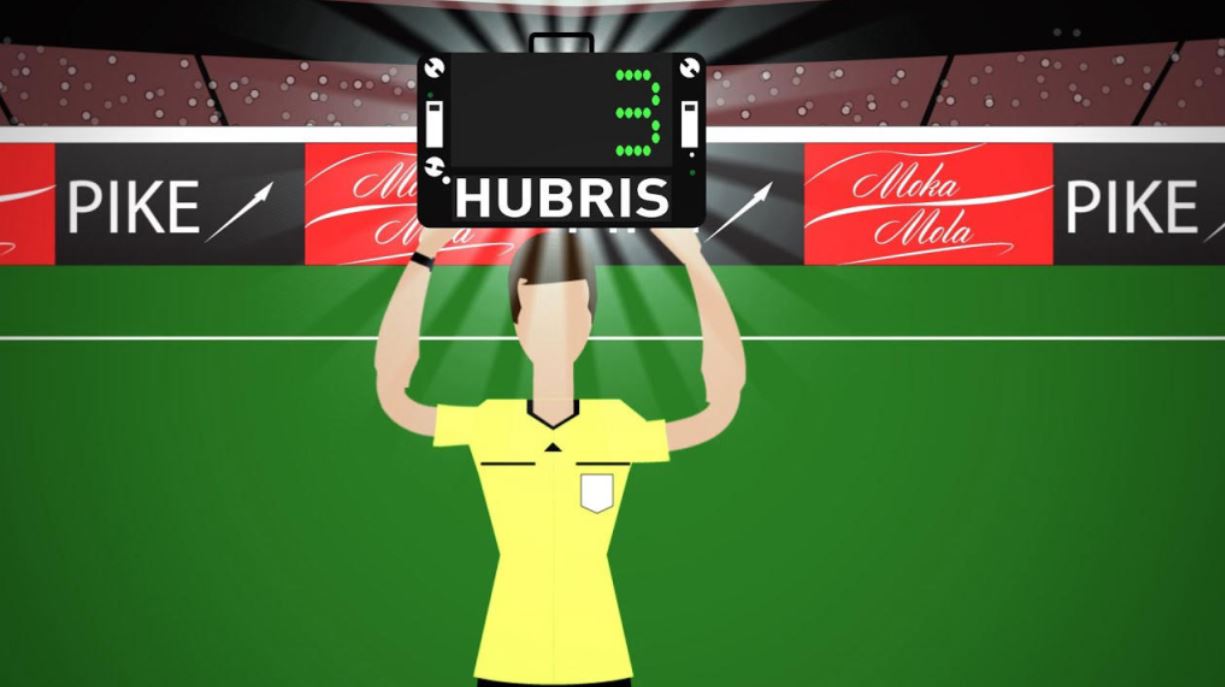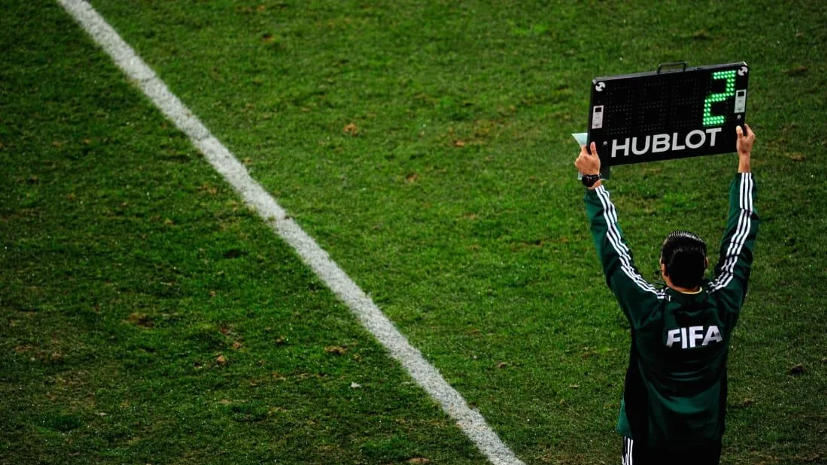Exploring the true length, stoppage time, and the evolving dynamics of the world’s most beloved sport.
Football, often described as the world’s heartbeat, is governed by time—but rarely confined by it.
While the official rulebook defines a match as lasting 90 minutes, the reality on the pitch often tells a more complex story.
Between stoppages, injuries, substitutions, and goal celebrations, no two games share the exact duration.
From grassroots tournaments to the FIFA World Cup, the length of a football match varies subtly, influenced by countless on-field factors.
To understand why a “90-minute” game can stretch past the 100-minute mark, we must explore the history, mechanics, and special circumstances that shape the rhythm of the sport.

Football Match Duration Overview
| Match Type | Standard Play Time | Extra Time (if applicable) | Half-Time Interval | Total Duration (approx.) |
|---|---|---|---|---|
| Regular Football Match | 90 minutes (2 × 45) | Up to 30 minutes | 15 minutes | 105–120 minutes |
| FIFA World Cup Match | 90 minutes + stoppage | 30 minutes (knockout rounds) | 15 minutes | 110–130 minutes |
| Youth Leagues | Varies by age (20–35 min halves) | Usually none | 10–15 minutes | 50–90 minutes |
| 5-A-Side Football | 2 × 20 minutes | None | Short interval | ~40 minutes |
| NFL (American Football) | 4 × 15-minute quarters | Overtime possible | 12-minute break | 180+ minutes |
Why Football Matches Rarely Last Exactly 90 Minutes
While the laws of the game stipulate a 90-minute format—two halves of equal duration—matches seldom adhere strictly to this timeframe.
Various elements extend gameplay, including injuries, referee reviews, time-wasting, and even goal celebrations.
In truth, the final whistle often blows well after the clock strikes 90. Each additional minute reflects the natural interruptions that make football unpredictable—and thrilling.
Origins of the 90-Minute Rule
The 90-minute standard traces back to 19th-century England, where football’s modern rules were first codified.
A historic clash between London and Sheffield sides prompted the agreement that matches should last 90 minutes—a compromise that later became universal through the Football Association (FA).
This standardization gave rise to what is now the global rhythm of football. Yet, despite the consistency of the rule, the actual duration of play remains subject to human nature and circumstance.
Referees, under FIFA law, possess the authority to determine how much time to add—an art as much as it is a science.
Understanding Stoppage Time And Its Impact
Stoppage time—or added time—compensates for moments when the ball isn’t in active play. It includes substitutions, injuries, VAR checks, time-wasting, and extended celebrations.
Typically, referees announce the minimum number of minutes to be played beyond 90 via an electronic board.
However, stoppage time can often exceed this estimate depending on the intensity of late-game events.
The concept ensures fairness, maintaining the balance between both sides. Yet, it’s also been the source of controversy—especially in the Premier League, where fans and managers often question the referee’s discretion.
How Long Are Matches In The FIFA World Cup?
FIFA World Cup games consist of two 45-minute halves, a 15-minute break, and stoppage time. However, in knockout rounds, if teams remain tied after 90 minutes, they proceed into extra time, divided into two 15-minute halves.
If a winner still fails to emerge, a penalty shootout decides the victor—a dramatic finale that can stretch the event well past the two-hour mark.
Interestingly, the 2022 Qatar World Cup broke records for the longest stoppage times ever recorded, with certain matches extending beyond 120 minutes due to FIFA’s stricter time-keeping directives.
Qatar 2022: When Time Stood Still
The 2022 World Cup stunned fans and analysts alike when matches featured unprecedented added minutes.
England’s 6–2 victory over Iran, for instance, recorded 27 minutes and 4 seconds of stoppage time—an all-time high.
FIFA’s new policy aimed to ensure “fair and complete” game time by compensating for unnatural time losses such as lengthy VAR checks or goal celebrations.
The initiative was spearheaded by Pierluigi Collina, the legendary referee and current head of FIFA’s refereeing committee.
However, as the tournament progressed, referees applied this directive more leniently, resulting in a gradual decline in extended matches.
Half-Time Duration And Its Evolution
Half-time in football typically lasts 15 minutes, offering players a brief but vital respite between halves.
While fans use this break for refreshments, managers and analysts use it strategically—to adjust tactics, correct errors, and reignite motivation.
Historically, the half-time concept originated when clubs from different associations played with distinct rule sets.
The match was divided so that each half could follow one association’s rules.
Eventually, the duration of 15 minutes was standardized, evolving from an earlier 10-minute break that was extended in 1995 for player recovery and broadcast considerations.
Even today, the interval cannot legally exceed 15 minutes, except for short hydration breaks permitted during extra time.
How Long Does Extra Time Last?
When knockout-stage games end in a draw, teams proceed into extra time (ET). This phase is divided into two halves of 15 minutes each, totaling an additional 30 minutes of play.
Goals scored during extra time are added to the final tally, and the game may still progress to penalties if neither side emerges victorious.
Players are granted a short five-minute pause before the penalty shootout begins, allowing them to recover briefly after nearly two hours of continuous play.
Penalty Shootouts: The Final Decider
If extra time fails to produce a winner, the match moves into the ultimate tiebreaker—the penalty shootout.
Each team takes five alternating shots from the penalty mark, with only the opposing goalkeeper standing in the way.
Should both teams remain level after five attempts, the game transitions into sudden death—a tense sequence where the first team to miss loses.
While penalty goals don’t count toward the official match scoreline, they remain etched in footballing memory for their drama and heartbreak.
What Is Fergie Time?

In the English Premier League, the term “Fergie Time” became synonymous with Manchester United’s late-game heroics under the legendary manager Sir Alex Ferguson.
It refers to the perception that United often found miraculous goals in the dying moments of matches—often during generous stoppage time periods.
While partly myth, “Fergie Time” highlights how crucial even a few added minutes can be in shaping football history.
The phrase remains a cultural touchstone among fans, symbolizing both the unpredictability of football and the psychological edge that Ferguson’s teams so often exploited.
Stoppage Time: How It’s Calculated
Every interruption in football—whether for an injury, substitution, or VAR check—contributes to what’s known as stoppage time (or injury time). During these intervals, play halts, but the official match clock continues running.
The referee keeps track of lost minutes and compensates by adding them to the end of each half. On average, stoppage time adds 1–4 minutes to a match, though high-scoring or eventful games may see far more.
The referee’s decision is final, though the fourth official displays the minimum additional minutes on a digital board for transparency.
Ball in Play: The Real Measure of Action
While a standard football match lasts 90 minutes, the actual ball-in-play time averages just 54 minutes in top European leagues.
This figure has steadily declined over the past decade, prompting debates about introducing a stop-clock system, similar to that used in the NFL.
Such proposals aim to ensure fairer play and reduce time-wasting tactics. However, critics argue that adding more stoppages would disrupt football’s continuous flow—the very quality that distinguishes it from other sports.
How Long Are Youth Football Matches?

In youth leagues, match duration varies depending on players’ age and physical development. Shorter halves help protect young athletes from fatigue and overexertion.
For example:
-
Under-6 leagues: 10-minute halves
-
Under-10 leagues: 25-minute halves
-
Under-14 leagues: 35-minute halves
-
Under-17 and older: Full 45-minute halves
Pitch size, substitution rules, and league regulations can also influence total match length. As children mature, so does their game time—mirroring their journey toward professional-level endurance.
UK Football vs. American Football: A Time Contrast
Despite sharing a name, football in the United Kingdom and American football (NFL) operate under vastly different time structures.
While a UK football match lasts roughly 90–120 minutes, an NFL game spans an average of three hours.
The American version features four quarters of 15 minutes each, numerous timeouts, commercial breaks, and lengthy stoppages that dramatically extend total runtime.
The Super Bowl, for instance, includes halftime shows that stretch the interval to over 30 minutes—transforming the event into both an athletic and entertainment spectacle.
5-A-Side and 7-A-Side Football Durations
Smaller formats of football, like 5-a-side and 7-a-side, are designed for recreational or amateur play and naturally have shorter durations.
A typical 5-a-side match lasts 40 minutes, divided into two 20-minute halves with a brief intermission. 6-a-side or 7-a-side games may extend to 45 minutes, depending on the venue or tournament rules.
These versions emphasize speed, agility, and constant engagement—proof that even in miniature, football retains its essence: rhythm, teamwork, and passion.
FAQs
How Long Does A Football Game Last In Total?
A typical football game lasts between 95 to 120 minutes, including stoppage and extra time.
Why Do Referees Add Time At The End Of Matches?
They add stoppage time to make up for lost minutes due to injuries, substitutions, or time-wasting.
How Long Is Halftime In Football?
Halftime lasts 15 minutes, giving players time to rest and receive tactical instructions.
What’s The Longest Football Match Ever Played?
The record goes to the Stockton Town vs. Bishop Auckland charity match in 2021, lasting 169 hours for a world record, though not a professional fixture.
Why Did World Cup 2022 Matches Last Longer Than Usual?
FIFA introduced stricter timekeeping to ensure all lost minutes—VAR, celebrations, and stoppages—were accurately added back.
How Long Does Extra Time Last?
Extra time is 30 minutes—two halves of 15 minutes each—used only in knockout matches.
How Long Is A Penalty Shootout?
It depends on the number of kicks taken, but typically lasts 5–10 minutes.

